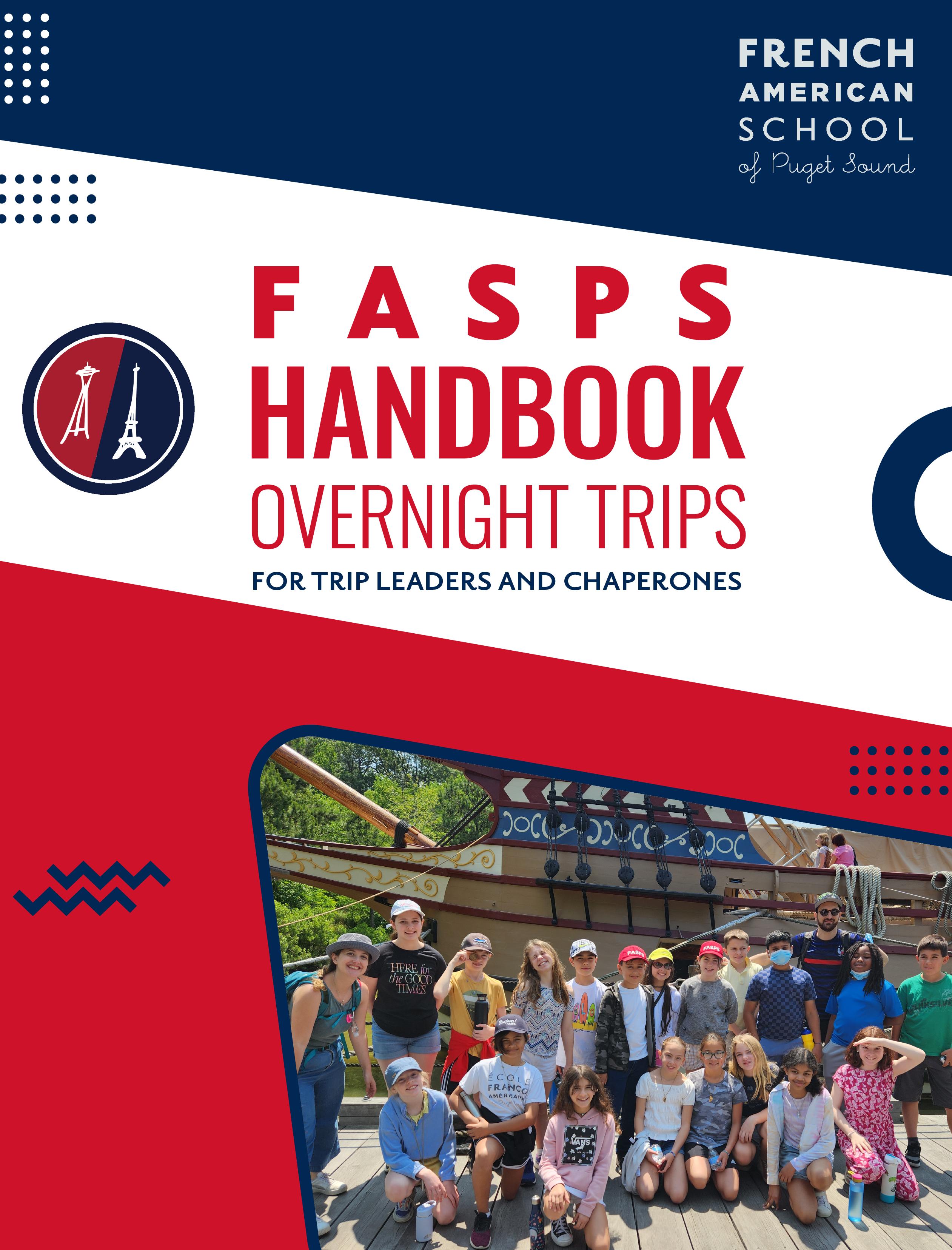
2 FASPS OVERNIGHT TRIPS HANDBOOK Introduction ..................................................................................................................................... 5 FASPS Mission, Vision & Core Values ............................................................................... 6 Diversity, Equity & Inclusion ................................................................................................... 7 Stay Students ................................................................................................................................ 8 Examples of Learning beyond the Classroom that Apply to Trips .........................9 Purpose of Handbook ............................................................................................................. 10 Purpose of Trips and Goals .................................................................................................. 10 Traveler Profile............................................................................................................................. 11 Importance of Wellbeing ...................................................................................................... 12 Roles and Responsibilities ................................................................................................... 13 Students ...................................................................................................................................................... 13 Parents .......................................................................................................................................................... 13 Trip Leaders.............................................................................................................................................. 14 Dean of Students/Advisors ............................................................................................................ 14 TABLE OF Contents
3 FASPS OVERNIGHT TRIPS HANDBOOK School Counselor ................................................................................................................................. 14 Division Head ............................................................................................................................................15 COO/CFO ....................................................................................................................................................15 Head of School ........................................................................................................................................15 Trip Proposals ............................................................................................................................. 16 Organizational Timeline (for Middle School) ............................................................. 17 Trip Leadership, Planning and Organization .............................................................. 18 Budgeting Considerations ................................................................................................... 18 Costs to Anticipate ............................................................................................................................... 18 Vendor Selection................................................................................................................................... 19 Post-trip Expenditures ...................................................................................................................... 20 Communication with Families ............................................................................................ 21 Trip Presentations ................................................................................................................................. 22 Families are our partners ................................................................................................................. 22 Areas to Consider when Conducting Initial Risk Assessments ........................ 24 Considering Equipment and Materials ................................................................................... 25 Planning Activities ................................................................................................................................ 25 Supervision ................................................................................................................................... 25 Student Abuse ............................................................................................................................ 27 Homestays and Vetting.......................................................................................................... 28 Online and Hard Copy Forms ............................................................................................. 29
4 FASPS OVERNIGHT TRIPS HANDBOOK Medical and Travel Insurance ........................................................................................... 30 Cancellations ............................................................................................................................... 31 Liabilities and Legalities ....................................................................................................... 31 Chaperone Leadership .......................................................................................................... 32 Teamwork: Before, During and After .............................................................................. 33 Compensation............................................................................................................................. 35 Travel Checklist .......................................................................................................................... 36 Equipment..................................................................................................................................... 37 Reporting Incidents ................................................................................................................. 38 Off-Site Incident Report Information Requirements ...................................................... 39 Place of Technology ................................................................................................................ 40 Emergency Contacts, Chain of Command and What If ............................................... 40 School Cell Phones .............................................................................................................................. 41 For France .................................................................................................................................................. 41 For Costa Rica ......................................................................................................................................... 42 For China .................................................................................................................................................... 42 Beijing........................................................................................................................................................... 42 General procedures ............................................................................................................................ 43 Risk Management ..................................................................................................................... 44 Debriefing and Review ........................................................................................................... 45 Agreement Signature Page ................................................................................................. 45
Introduction
FASPS currently offers overnight trips to Idlewood, WA, Washington, D.C., Orlando, FL, and internationally to France. In the past and resuming in 2024, we plan to offer trips to China and Costa Rica as well as resume the Canary Island exchange program. How new destinations and modifications to our trips may be envisioned can be found in the Trip Proposals section of this Handbook.
In 2019, after working with the international trip consulting group Lodestone Safety International, an international task force was created to apply applicable findings and to review how trips are organized and operated at FASPS. While a particular focus was placed on international trips, some of the information in this Handbook is relevant to all overnight trips.
The purpose of this Handbook is to guide to policies, procedures and responsibilities; it is not a contract, and we reserve the right to modify it at any time with or without notice.
5 FASPS OVERNIGHT TRIPS HANDBOOK
FASPS Mission, Vision & Core Values
The Mission of the French American School of Puget Sound (FASPS) is to challenge students to excel academically and thrive in French, American, and international cultures. Our Vision is to inspire the next generation of global citizens to learn, understand, and act wisely in a multicultural world. Our Core Values guide our work and shape our students’ educational experiences:
Excellence: We have high expectations of our students and staff. Our community thrives within an environment of self-exploration to find their best selves in school, at home, and in life.
Integrity: Whether it is educating and caring for our students, managing our finances, developing school curricula, planning fundraising events, or running the after-school program, we always operate with the highest regard for our community and our international network. We support students with learning around integrity and making their choices accordingly.
Cultural Agility: We believe that ‘beyond the classroom’ experiences such as special guest visits, performances, presentations, exhibits, field trips, local outings, and national/ international trips are essential to create open minded, successful students who are prepared for life after FASPS.
Community: Our dedication to our community drives our actions. We prioritize a diverse, inclusive, and inviting community and work hard to create an environment where individuals look forward to walking through our front doors every day.
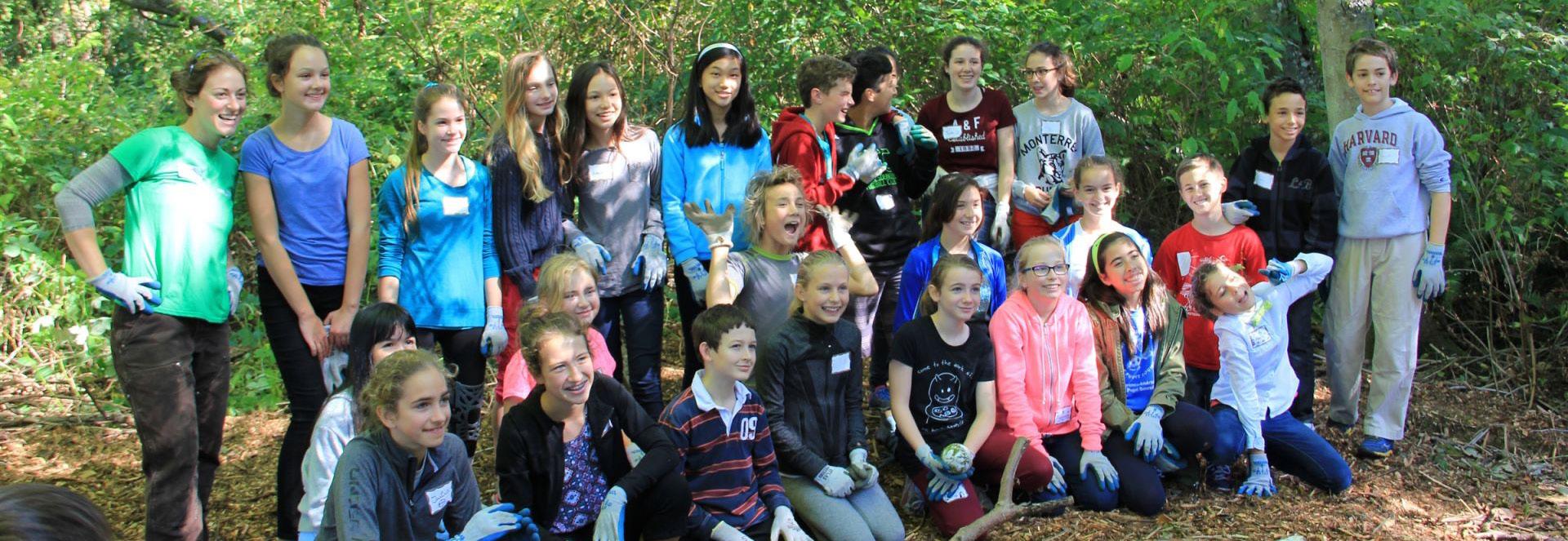
6 FASPS OVERNIGHT TRIPS HANDBOOK
Diversity, Equity & Inclusion
At the French American School of Puget Sound (FASPS), we prioritize diversity, equity, and inclusion. We commit to creating and nurturing a culture that seeks diverse representation, respects and celebrates individual and group differences, and strives to address inequities in our community and beyond.
Diversity: results from the unique blend of what makes us singular as student, parent, and employee. It means respect for the values shaped in part by each individual’s background, race, color, ethnicity, gender identity, sexual orientation, ability, religion, nation of origin, language, socio-economic status, and any other differentiating factors.
Equity: is the process to provide the broadest possible set of opportunities for each individual’s needs and ensure that students, parents, and employees thrive. Equity is the process; equality is the sought-after outcome.
Inclusivity is the intentional creation and nurturing of a school environment in which the engagement of each student, parent and employee is valued and sought.
FASPS strives to have every student attend overnight trips. The application of the Cultural Agility Fund helps keep trip costs accessible. Families who might need additional assistance are invited to contract the Head of School so their needs can be considered through the Tuition Assistance Commission.

7 FASPS OVERNIGHT TRIPS HANDBOOK
Stay Students

Trips are opportunities for students to apply their learning experientially, and they are related to the academic program. Students who do not attend trips will not be penalized in any way if they do not attend, however. In most cases, FASPS will prepare activities for students not participating in trips, called “stay students.” The type of activities will be based on the number of students, their ages, and the school’s resources. Families also have the option of not sending their child to school for the duration of the trips.
Teachers who do not chaperone trips will be kept informed of the progress of trip planning. Trip Leaders may delegate organizational tasks to them and seek their suggestions, as long as these requests do not interfere with their organization of stay activities, of which stay teachers share the responsibility. Stay teachers teach and supervise the stay students in the program they will have designed for the number of students and resources available. In the case there are more stay teachers available than needed for the number of stay students, the stay teachers will help substitute lessons across the school. They can also be allocated other tasks.

8 FASPS
HANDBOOK
OVERNIGHT TRIPS
Learning Beyond the Classroom
FASPS acknowledges and supports the extension of learning beyond the temporal and spatial boundaries of the classroom.

Examples of Learning beyond the Classroom that Apply to Trips
� Required/recommended reading
� Required/recommended writing practice or creative writing
� Attending a museum, art exhibit, science event
� Learning a musical instrument or dance
� Reporting back or sharing experiences related to travel, cultural agility, DEI, personal interests, and projects
� Recording oneself singing, reciting, performing, presenting
� Initiating, collaborating, or doing a project independently or as a group
� Redoing or practicing an area for improvement
� Extending on a task or project that incited curiosity or passion for topic
� Engaging in debate or public speaking opportunities
� Interviewing others
� Conducting research
� Engaging in service learning
9 FASPS OVERNIGHT TRIPS HANDBOOK
Purpose of Handbook
The purpose of this handbook is to provide clarity around the planning, organization, execution, and review of trips. By increasing communication and accountability, we increase the safety and wellbeing of our students, families, and employees, which is always our highest priority.
All Trip Leaders and chaperones are responsible for the material included below. Some could be viewed as advice or best practices, but other pieces are core expectations. While it is critical for Trip Leaders to respond appropriately to the specific conditions that they face on the ground, it is also necessary to lay out standard operating procedures to protect students, Trip Leaders, and the School. Please review the following pages carefully and seek more information or clarification as needed.
Purpose of Trips and Goals
Our objective is to promote academic, cultural, and social-emotional growth by offering trips that nourish international perspectives and intercultural understanding. Beyond learning how to operate successfully in an increasingly interdependent, global, and multicultural world, FASPS students will further develop their cultural agility, empathy, and global citizenship. With integrity and excellence, they will participate in creating a more sustainable and peaceful world.
The international trips have the goal of providing access to culture and language. Trips will continue to be designed in ways that will offer learning opportunities for language acquisition, exploration, and appreciation. This goal will be kept in mind when planning the trip so that they are designed with corresponding curricular links, activities, and projects.
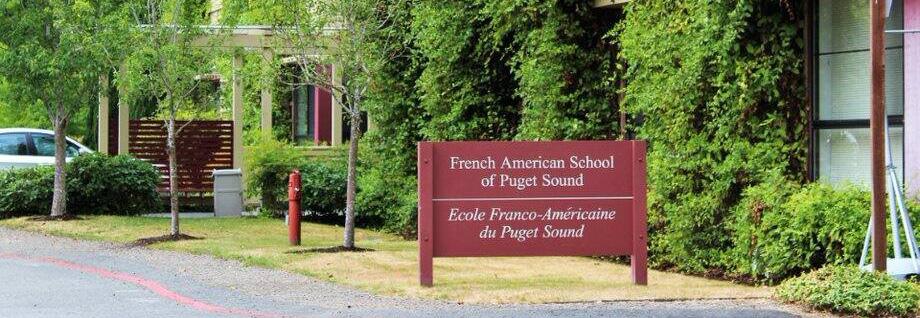
10 FASPS OVERNIGHT TRIPS HANDBOOK
Traveler Profile
The FASPS values inform and guide us with planning our trips as well as with setting expectations for our behavior while participating. The trips provide experiential learning opportunities for students to explore FASPS values in conjunction with their own and those of the host country and culture. A FASPS Traveler Profile relies on integrity, community and cultural agility, and our commitment to these values increases our overall excellence as a school and community.
By making the right decisions away from home, we gain confidence and autonomy, and by using acquired language skills we become better communicators. Trips allow us to go beyond the role of “tourist” and decisions around trips must take into consideration how students will develop their traveler profile throughout their years at FASPS.

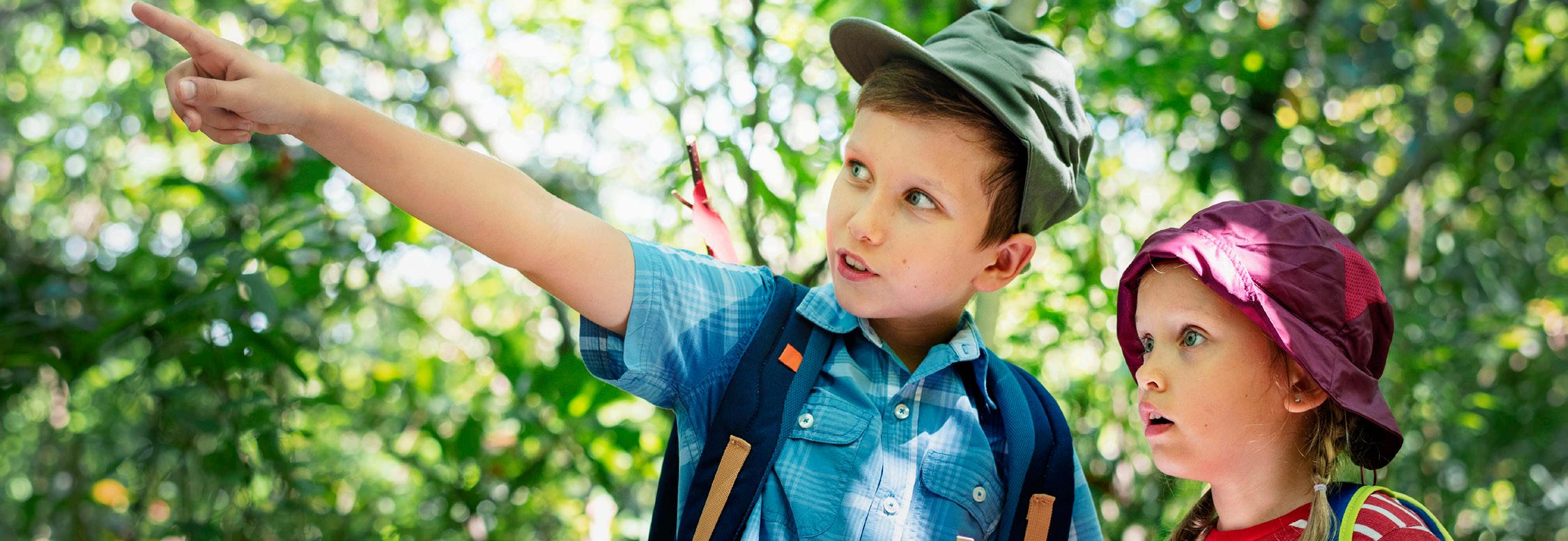
11 FASPS
OVERNIGHT TRIPS HANDBOOK
Importance of Wellbeing
We will discuss wellbeing in further detail in the sections about organization, inclusion, supervision, and risk management. It is important to note that when we refer to wellbeing on trips, we are referring to both students and employees.
If questions or concerns surrounding wellbeing arise, they should be brought to the attention of the Trip Leader or School Counselor, who might refer these to the administration for further review. By agreeing to step out of our routines and comfort zone with the support of our friends and teachers, we can demonstrate how caring we are and strengthen our community.

When we travel, our social, emotional, medical, and dietary needs need to be addressed. We also need to show proof of cultural agility by trying new foods or adapting to a different schedule among other things.
If at any time there is concern about a student or chaperone’s mental state or behavior, this must be brought to the attention of the Division Head or Head of School immediately.
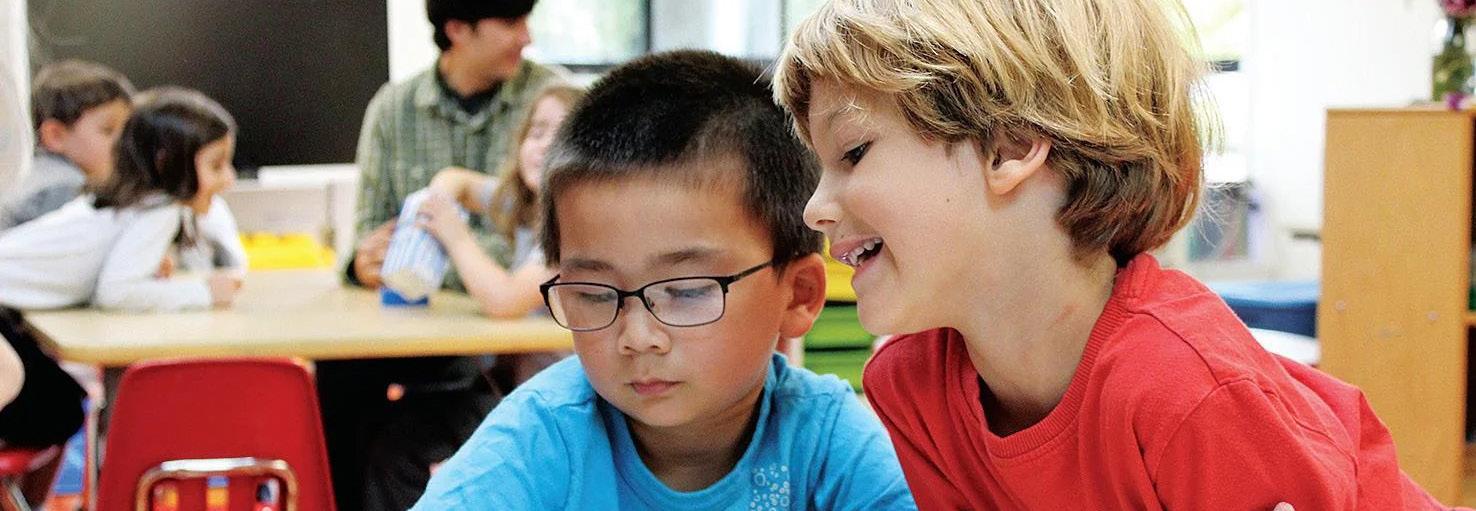
12 FASPS OVERNIGHT TRIPS HANDBOOK
Roles and Responsibilities
� Relay information between home and school
� Bring a positive attitude and motivation before, during, and after trips
Students
� Engage in language and all other activities to prepare, practice, and participate in all activities and projects
� Respect the Behavior Expectations Agreement and FASPS Code of Conduct
� Actively seek information pertaining to trips
� Turn in forms and make payments on time
Parents
� Accurately communicate physical and mental health information to School and supporting agencies

� Respect the expectations related to the trip (with particular attention to technology use) and the School’s Code of Conduct
� Help child prepare for trip and participate
Trip Chaperones
� Are FASPS employees
� Are responsible for carrying out duties enumerated in this handbook and with complying with relevant laws
� Always act in a way that puts safety of the children first
13 FASPS
OVERNIGHT TRIPS HANDBOOK
Trip Leaders
� Are also chaperones
� Are faculty and will have generally been teaching for two or more years
� Take the lead on planning, budgeting, and organizing the trip
� Liaise with Division Head and Business Office regularly
� Support the collection of forms
� Have the responsibility and authority to supervise the other chaperones and the students in conjunction with other chaperones, ensuring the trip runs in accordance with the plan, this handbook, and any applicable laws
� Are primarily responsible for reporting and coordinating emergencies or responses to incidents.
� Conduct a trip review
Educational Leaders / Dean of Learning & Teaching
� Provide insight and support about curricular projects and educational outcomes from trips
� Support and inform around experiential and interdisciplinary learning
� Are consulted if new trip destinations are being proposed
Dean of Students/ Advisors
� Provide behavioral support plans and recommendations
� Can be liaison between the parents, the School, and the students should accommodations be needed
� Participate in student wellbeing preparations and safety information sessions during assemblies, advisories or flexible learning times
� Are consulted about travel groups, rooming and homestay arrangements
School Counselor
� Can be consulted about student behavior plans and accommodations
� Can participate in student wellbeing preparations and safety information sessions during assemblies, advisories, or flexible learning times
� May be consulted about travel groups, and room and homestay arrangements
� Is the main resource should trauma occur
14 FASPS OVERNIGHT TRIPS HANDBOOK
Division Head
� Supports and supervises the work of the Trip Leaders
� Collaborates with Trip Leaders to establish optimal placement of chaperones across trips
� Liaises with Trip Leader and Business Manager about budgeting and payments
� Reviews and amends forms
� With the support of the Business and Facilities Managers, is responsible for formal risk analysis of each trip and insurance plans
� Is available to problem-solve and support
� Collaborates with Trip Leaders, Advisors, Dean of Students and School Counselor to finalize and communicate around individual plans (behavior, health) and accommodations for students or chaperones
� Is contacted when intermediate to serious incidents occur
� Attends all trip review meetings
� Reviews this handbook regularly
� Approves trip budgets and use of cultural agility funds with Division Heads
COO/CFO
� Receives and disperses funds
� Is consulted about safety and risk management issues as well as insurance plans purchased
Facilities, Office and Transportation Director & Covid-19 site Coordinator
� Prepares visas and other documentation as required
� Makes arrangements for exchange students (bus, hot lunch, furniture) in partnership with Division Head
� Is consulted about health, safety, and risk management issues
� Reviews this handbook regularly
Head of School
� Ensures overall direction and safe conduct of various travel programs, and that they remain consistent with FASPS mission and goals.
� Delegates proper authority and responsibility to employees to plan and carry out trips
15 FASPS OVERNIGHT TRIPS HANDBOOK
Trip Proposals
Trip proposals will be received by the Division Heads from Trip Leaders or interested teachers. They will be evaluated according to the FASPS mission and values, coherence with this handbook’s purpose and goals, as well as curricular projects, program objectives and educational opportunities. Because relationships provide greater safety (vetting) and reinforce community ties, trips that build enduring relationships with a particular community, school, organization, or vendor will be given priority to continue on an annual basis.
If a change in international destination is considered, it should be proposed 18 months in advance. If a homestay is to be arranged, the recommended planning time would be 2 years in advance. A backwards planning method will be used to simulate feasibility.
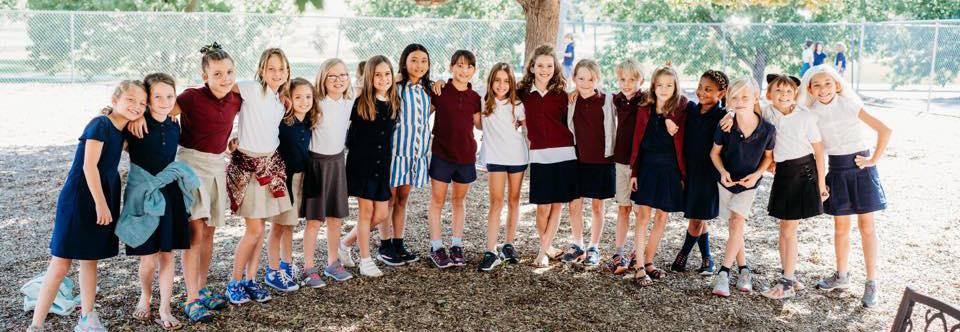
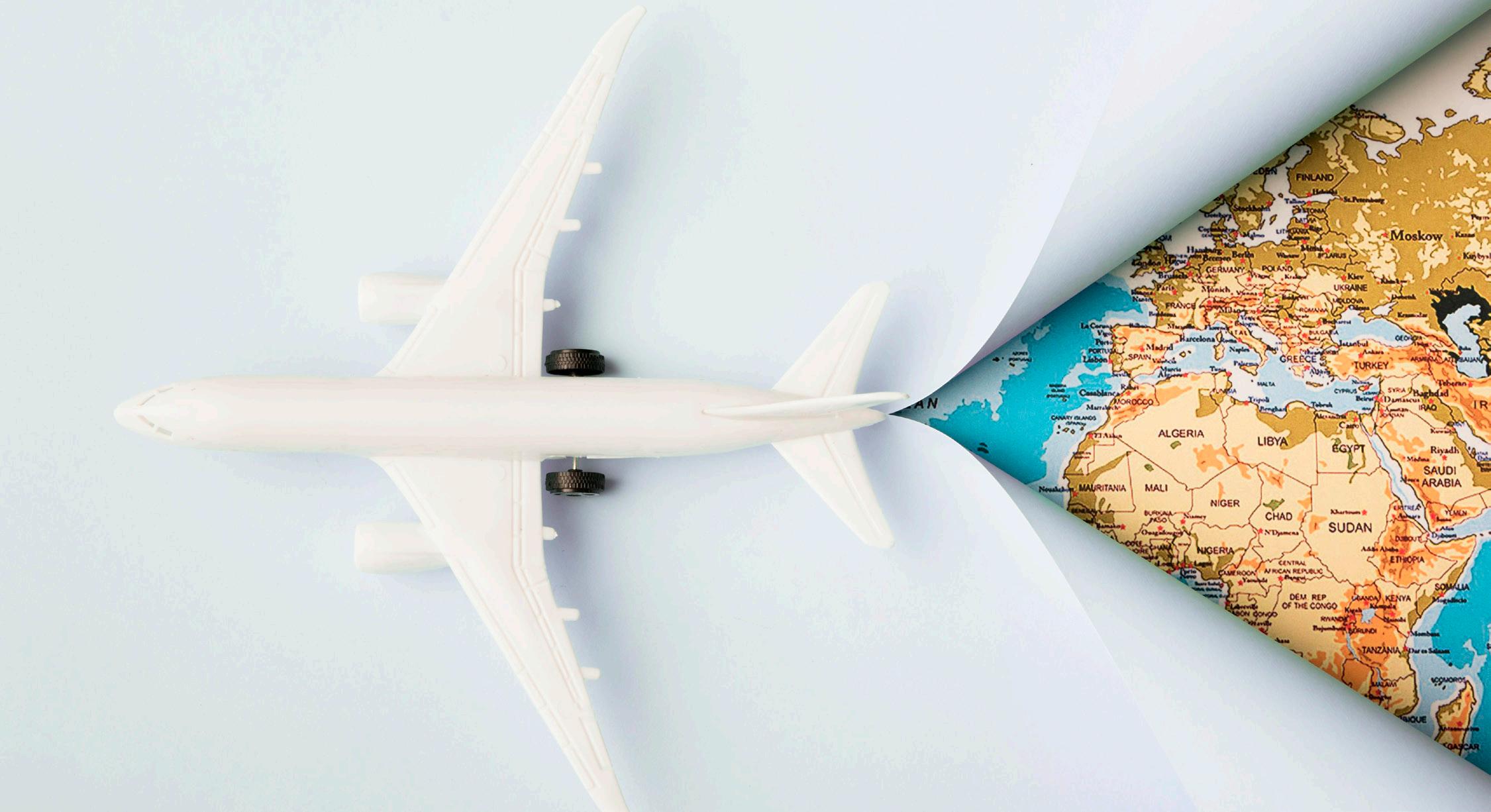
16 FASPS OVERNIGHT TRIPS HANDBOOK
Organizational Timeline (for Middle School)
This is a general, non-exhaustive outline.
July-October Group flight and hotel reservations, budget established.
September-November Internal travel and lodging accommodations reserved; preliminary family survey to check passport validity, immigration status and student participation; chaperones assigned to trips and task delegation meeting; trip presentations with families.

November-February Visit and tour reservations, meals, and other planning; paperwork management, passport information collected, insurance purchased, cultural agility decided & final cost shared with families so billing can begin with business office with enough time for families to be billed in 3 times.
February-March Curricular Instruction connected to trips; passport photocopies collected; flight ticketing names.
March-April Deadlines for forms. Homestay pairings completed and communicated.
April Student behavior agreements, trip information sessions, sharing of forms across chaperones
May/Week before OTC and prescription medications collected, first aid kits checked, emergency forms and trip forms gathered. Travel groups and room placements are finalized. Equipment below checked.
17 FASPS OVERNIGHT TRIPS HANDBOOK
Trip Leadership, Planning and Organization

Trip leaders demonstrate experience in the skills required to successfully guide students in travel abroad. This may include experience travelling with students, skills in managing group dynamics, experience in proposed destination, ability to communicate in the language of the country visited, and/or other experiential and offcampus learning skills.
Budgeting Considerations
As a Trip Leader, you are responsible for planning expenditures and having these checked by the Division Head and Business Office. Your cost estimate needs to be carefully thought out as families are charged according to the anticipated costs. The total cost to families will depend on the number of students participating, the number of chaperones and financial support applied from the Cultural Agility Fund.
Costs to Anticipate
� Transportation costs: vehicle rental and insurance, airfare, public transportation, fuel, airport, and local parking fees
� Travel insurance
� Telephone expenses
� Meals, snacks, bottled water
� Lodging
� Entry fees and tickets
18 FASPS OVERNIGHT TRIPS
HANDBOOK
� Guide and instructor fees
� Tips
� Supplies and safety gear
� Miscellaneous expenses (petty cash)
� Potential upfront hospital, extended hotel, or flight change costs (credit card)
Vendor Selection
With safety as our highest priority, several criteria will be applied to ensure safe and equitable selection and procedures. Division Heads and Trip Leaders will consider and evaluate the following criteria:
For Airlines: Use of major airline with considerable budget and safety ratings
For Lodging:
� If using smaller chains or independent parties, make sure emergency and evacuation procedures and policies are clearly posted, and that the financial standing of the institution is strong.
� When possible, preference should be given to single floor accommodations. Confirm that at least one chaperone can be housed on each floor, if possible. Chaperones should be in good proximity.
� Evaluate cleanliness reviews and ratings.
� When possible, request a safe in Trip Leader rooms
� Account for the quality of water, pool, exercise rooms…
� Pay attention to supplies in room for hot drinks, beverages, including dangers of mini-bars
� Pay attention to communicating doors between rooms
� Plan in advance with hotels so that rooming arrangements will not be compromised
� Students are prohibited from using hotel phones
Restaurants:
� Ask for city, county, national safety ratings and inspection information.
� Check customer reviews
� Confirm that establishments meet environmental requirements (severe food allergies)
� Plan ahead with the manager to accommodate dietary constraints, so that they will provide alternative menus.
� Make sure prices are aligned with the quality of food they commit to serving.
19 FASPS OVERNIGHT TRIPS HANDBOOK
Tour Guides :
� If part of a larger company, check with the company about background checks as part of their recruitment process. If private, ask for references or background check to be conducted.
� Continue to work with the same guides year after year.
� Hire guides with a proficient level of English and/or French
� Do not leave guides alone with students at any time.
Post-trip Expenditures
Request for reimbursement: chaperones will have meals with students during the trip. Trip Leaders may also pay for incidentals with the school credit card for the group and include this in the budgeting or reimbursement process. In some cases, such as airports, incidentals will occur. Incidentals are those minor personal expenses incurred. Some incidentals that are reimbursable include internet fees, taxis / ridesharing, shuttles, first aid kit refills, etc. Keep copies of these receipts to complete a Request for Reimbursement.
School Credit Card Expenditures: keep all receipts for expenses debited. Typically, expenditures on this card relate to transportation, meals, fees, and medical attention. Durable items purchased using the school’s credit card are FASPS property.

20 FASPS OVERNIGHT TRIPS HANDBOOK
Communication with Families
Communication with students and parents will require careful planning from the start of the trip planning process. Consider the role of technology, and the types and frequency of communication that will be respected between students and parents, and the chaperones and parents, as well as access to the internet.
It is essential to manage parent and student expectations around communication before and after trips, and especially during trips. Communication expectations for students and with parents needs to be communicated during trip presentations.

We view student communication with home as a way to process and learn from their experiences, rather than providing a lifeline to what is familiar. Building self-reliance, independence, and a sense of trusting one’s group and leader is at the heart of this. Student use of cellular- and wifi-enabled devices (Smart & Apple watches, cell phones, Kindle Fire, etc) must be age-appropriate and adapted to the duration of the trip, the destination, and whether a homestay is involved. Any plans surrounding the use of technology on trips will be vetted by the Division Heads prior to any communication to families.
Trips information (updates and photos) will be uploaded to the Grade Level pages on MyFASPS, internet and teacher resources (time, devices) permitting. Again, expectations around communication frequency and modes used during trips needs to be established with families well ahead of departure. The trip presentation will also be uploaded to the MyFASPS page. Trip Leaders are encouraged to designate a chaperone who will be responsible for posting updates and photos.
21 FASPS OVERNIGHT TRIPS HANDBOOK
Trip Presentations
In the months prior to departure, parents should be informed of the following via the trips page on MyFASPS and the trip presentation:
� An explanation of the purpose and objective
� The cost of the trip and the forms families should expect to complete

� The itinerary and chaperones
� Students and parents should receive a packing list two months prior to departure
� Identify how much personal money students might bring and in what form
� Expectations for student behavior and participation, including pre-trip commitments.
� Expectations for frequency and means of communicating during the trip, including blog posts or emails
� A full review of trip plans and emergency contact information.
Trip Leaders plan and prepare the trip presentations, and all chaperones attend the trip presentation they are chaperoning.
Families are our partners
The more reassured they feel, the more the students will feel reassured. Positive communication starts with comprehensive trip information before departure, consistent communication during the trip according to a plan shared with families before departure, individual communication to families when incidents arise for a particular student or students and follow up communications until any concerns are fully resolved.
22 FASPS OVERNIGHT TRIPS HANDBOOK
Trip Leaders use their best judgment around reporting incidents. The behavior app is a good model for considering when behavior needs to be reported. Below are some examples of incidents that would require a report to the Division Head or other Directors.
� Illness or injury requiring doctor/hospital visit
� Robbery/theft (or an accusation thereof)
� Suggestion of or intention to self-harm or harm others
� Sexual contact between students (or other individuals)
� Student separated from group –intentionally or unintentionally

� Use of alcohol or abuse of unauthorized prescription or non-prescription drugs
� Harassment of any kind or significant disturbance within group dynamic
� Unauthorized use of technology (viewing inappropriate material, putting group in danger, communication about subjects of which chaperones are not aware that could impede safe dynamic)
� Itinerary changes, delays, redirected flights, or unexpected destinations (aircraft or bus malfunction, airport closure, inaccessible lodging, etc)
� Lost/stolen passport(s)
� Involvement in a natural disaster that results in significant local damage.
23 FASPS OVERNIGHT TRIPS HANDBOOK
Areas to Consider when Conducting Initial Risk Assessments
Initial risk assessments refer to the measures taken before departing on the trip. It is the phase when we are planning for safe travel.
There are several factors the enter into risk assessment:
� Place and time of travel
� Visas and immunization records that might be required
� Awareness of medical conditions of travelers (both physical and psychological) and access to help
� Preparedness and communication
� The importance of teamwork
� Ages of travelers, group size, number of chaperones, supervision
� Trip Leader and chaperone training (reading of handbook, annual health and safety training, review of crisis management)
� Insurance
� Transportation, meals/water and lodging access and quality
� Partnerships with other organizations or service providers, including vetting
� The case of homestays and vetting, including rules, trusting & lasting relationships year-to-year, hosting guidelines, and contracts
� Student consent and preparedness
� Parent/guardian consent and preparedness
� Informing of travel to authorities
� What if protocols (evacuation awareness and risk assessment at destinations, lost person protocol, seeking the nearest police, fire, medical authorities in area are) for Trip Leaders and chaperones
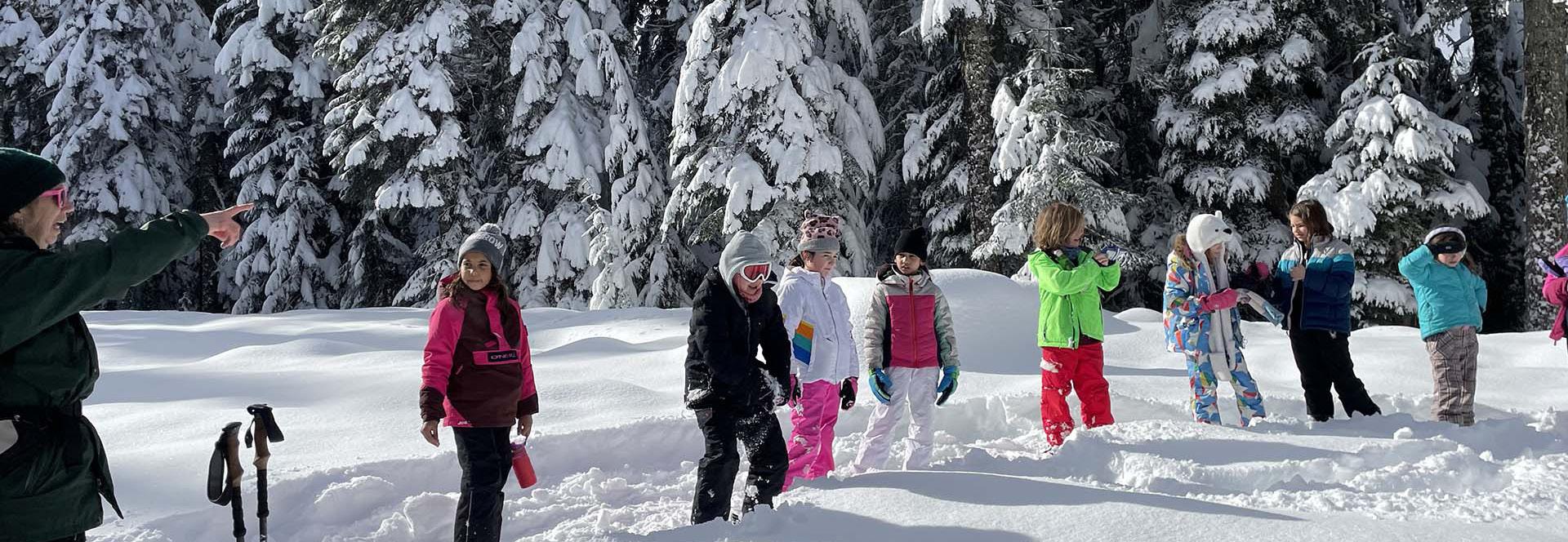
24 FASPS OVERNIGHT TRIPS HANDBOOK
Considering Equipment and Materials
Identify any tools, chemicals, or machinery that will require procedures or could present risks and injuries.
Planning Activities
Prepare a list of the activities that students will participate in. Identify the precautions and hazards that could arise with each activity.
Supervision
A schedule for chaperone supervision must be made by the Trip Leaders and reviewed by the Division Head before being shared with all chaperones. Chaperones will have access to free time and will understand their commitments.
Students will be informed of chaperone transitions throughout the stay, and when they will benefit from free time as well as the ways it may be used. Any time that might not involve fully present and active supervision will need a clear plan and to be communicated to parents as part of the preparations.
When touring sites, students should have the address and phone number of their place of lodging. Whenever possible, they should also have a map with the lodging marked on it. If lost, students find a police officer, or seeking help from a Visitor Information booth at a major tourist sight, or a shop or restaurant.
Students may only go out unaccompanied by Trip Leaders under certain conditions. Students in cities must be in groups of at least three, though in smaller places pairs can be acceptable. The area of movement must be clearly established (mark the acceptable zone on a map or identify dominant landmarks). In addition, students must already be comfortable and confident in the area.
For overnight accommodations, a lights-out time is set and communicated to students and all chaperones. Designated chaperones do a bed check every night of the trip. Students are expected to remain in their respective rooms until morning. Students may not visit each other’s rooms after lights-out. If concerns arise, recommended measures include changing room assignments or taping the outside of the door. Measures must be taken to ensure that at least one Trip Leader is on every floor where students are lodged.
25 FASPS OVERNIGHT TRIPS HANDBOOK
Students must know where to find a FASPS adult at all times. When checking into a hotel, make sure that all room assignments are known before dispersing.
If a trip involves homestay, check in with students frequently. While some discomfort is the be expected in these situations, make sure to directly address any concerns about student safety or wellness.
While it is our expectation that students participate in the trip according to the organization as set, family requests will sometimes occur. Modified returns or departures, student visits to families in the host country or the inclusion of former students for an activity can be arranged only if these do not compromise the overall organization and experience of the trip for others, and if chaperones are available realize the request. All requests are planned ahead of departure and with the Division Head’s knowledge.
When using mass transit, such as the subway or bus, make sure all students know which stop is yours. Try to give both the name of the stop and the number of stops it is from your destination. If boarding a particularly crowded subway, it is possible that all students will not make the same train. Instruct them to wait at the destination until the full group has reunited.
Taxis and ride-sharing: on some occasions, it is necessary to move a group by taxi or ride-sharing. However, there may not be enough adults on the trip to ensure that one is present in all taxis. In this scenario, ensure that the following occurs:
� One adult should be in the first taxi to depart. That way, they can be on site to catch the others as they arrive.
� The student-only taxis should depart next. Before departing, the Trip Leader should confirm the destination with the taxi driver, reconfirm that the students have all relevant phone numbers, and supply one student with cab fare. S/he should also reconfirm plans with the students for what to do if they don’t end up where they are expected.
� The Trip Leader (or teacher with the greatest language proficiency) should go in the last taxi.
26 FASPS OVERNIGHT TRIPS HANDBOOK
Student Abuse
Chaperones should refer to the FASPS Employee Handbook for the most recent information. On trips, all policies must be adhered to regarding student-teacher interactions. Trips are contexts during which adults apply such policies strictly.
Through partnership with the School Counselor, we also prepare students with tools for reporting questionable situations and behavior, concerns, and any form of misconduct or abuse.


27 FASPS
OVERNIGHT TRIPS HANDBOOK
Homestays and Vetting
When homestays are part of a trip, it is imperative that families be vetted well beforehand. When partnering with a student travel organization, it is usually the organization that takes this on. When the arrangements are made school-to-school, the administration and Trip Leaders of both schools must work together to guarantee a robust vetting process has been established.
Ideally, the same families are used for homestays, which is the case of travel to Costa Rica, for example, where the school partnership does not include a student exchange.
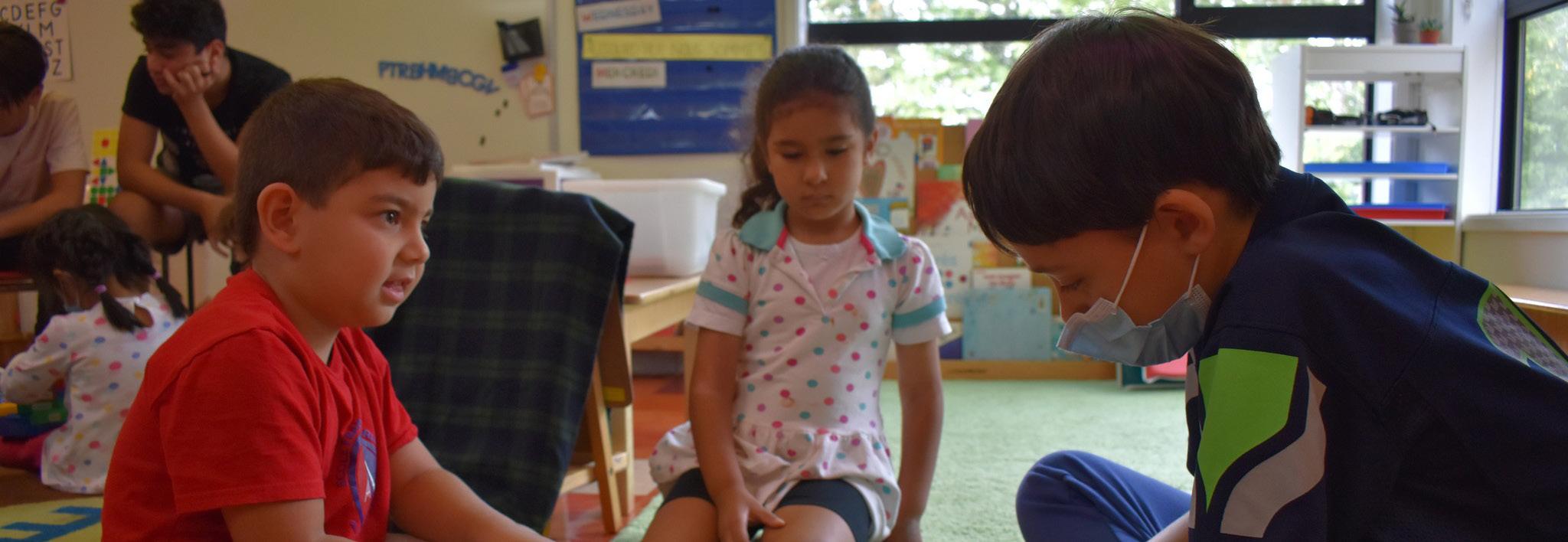
In the case of exchanges, this is not the case as the families are paired each year. In this case, the following actions can protect our students and the school:
� Questionnaires are used to pair families according to values and interests, and to disclose all people living in the home or that would visit the home during the stay.
� An agreement outlining living expectations and behavior is signed by the parents and the students of both families.
� Once paired, a mandatory video (or phone) exchange takes place between the families during which they share their expectations, concerns and needs, including understandings around when and how students will be supervised and/or allowed free time.
� Information related to dietary, medical, socio-emotional and safety needs, including insurance contacts, is clearly documented and shared between the families.
� Ideally, an in-person or virtual visit to the home is made by a representative of the school to make sure there is a private room (if possible) and at least a separate bed within the exchange student bedroom.
� A point of contact outside the household is clearly established in the case of concerns that could arise, and students have access to a personal device for communication.
� School forms include clear language around liabilities.
28 FASPS OVERNIGHT TRIPS HANDBOOK
Online and Hard Copy Forms
All students/families complete online forms on MyFASPS. They incorporate health and personal student information (passports, medical, etc) as well as waivers pertaining to liability. They must be accessed by the Trip Leaders and chaperones when reserving meals according to dietary restrictions, and when travel groups are created, so as to make sure attending chaperones are aware of medical needs, allergies, etc.
Certain destinations might also require a doctor’s visit, proof of immunization, or notarization. These forms are in addition to online forms, and are often collected in paper form, then scanned and shared with the chaperones.

Chaperones might also encounter the need for notarized forms and affidavits, which will also be collected and scanned.
The week prior to trips, parents will often turn in medications to Trip Leaders. OTC medications that will be administered throughout the trip to a student will require an OTC form in addition to the release included in the online form for unforeseen situations that might arise. Prescription medications must include the container with administration instructions and the Rx form completed by the Physician.
Unless prior approval has been obtained, medications, including epi-pens and OTC medications, are never carried by the student. The trip leader or group leader for that student carries the medication on them at all times. Two epi-pens will be brought. The second can be picked up in the Health Office. In most cases, one inhaler suffices.
When paperwork is required in addition to online forms, the collection of the forms will be clearly delegated to one or more chaperones.
29 FASPS OVERNIGHT TRIPS HANDBOOK
Copies or scans of passports and visas can be kept on the Trip Team for each Trip. Students are not part of these Teams. These teams are deleted each year so that sensitive documents are deleted.
Questions about international travel with regards to a student’s immigration status should be brought to the Division Head and Head of School’s attention.
Medical and Travel Insurance
FASPS Civil Liability Insurance will cover a variety of incidentals that could occur during trips, especially when they are domestic.
FASPS also purchases medical (WFIS, Travel Insured) and travel (Travel Insured) insurance for chaperones and students participating in international trips. Copies of these policies are sent to families directly and chaperones also carry this information with them in the event of emergencies.
For domestic trips, we also purchase WFIS medical insurance.

30 FASPS OVERNIGHT TRIPS HANDBOOK
Cancellations
If is important to survey families early in the process to know if they plan to send their child on the trip. Cancellations by families can be problematic, because we advance funds for group reservations, and refunds to families affect group pricing. We also have hard deadlines for refunds with regards to airfare, lodging, and more. Any requests by families for cancellations must be directed to the Division Head for review. We do take travel insurance that will cover certain types of cancellations, but it does not cover all scenarios, because “cancel for any reason” insurance significantly raises the cost of travel for the group.
Liabilities and Legalities

Trip forms for parents and students are created by the Division Heads. In most cases they are collected electronically. In advance of the trip, the forms are shared with Trip Leaders and chaperones for planning dietary, medical, and other needs. With the support of the Head of School or Facilities, Office and Transportation Director & Covid-19 Site Coordinator the Division Head checks and plans for immigration requirements.
In addition, parents and students sign an electronic agreement to respect the rules and expectations of the trips. The agreement communicates consequences that could be applied should a student show behavior that does not align with our rules. The student agreement is completed with advisors and Trip Leaders once the parents have had the opportunity to review the student agreement.
31 FASPS OVERNIGHT TRIPS HANDBOOK
Parents, as part of the enrollment and prepare-to-travel processes, sign multiple waivers that release the school and you from liability in all cases excluding gross negligence or willful misconduct on the part of the school or its representatives. According to the Washington Pattern Instructions, WPI 10.07, Gross negligence is defined as “the failure to exercise slight care. This is negligence (not intentional) that is substantially greater than ordinary negligence. Failure to exercise slight care does not mean the total absence of care, but care substantially less than ordinary care.”
Chaperone Leadership
Trip Leaders plan heavily before the trips. They think ahead to the expertise of their chaperones and listen to the chaperone’s ideas and concerns. They also delegate tasks equitably and deliberately. This teamwork forms a strong support system for everyone attending the trip. It builds confidence and sets the atmosphere for student wellbeing and their experience.
Trip Leaders liaise with the Division Heads, who will coordinate with other directors (HR, Facilities) about student and staff wellbeing needs and how to keep safety as the highest priority. When challenges occur, Trip Leaders must be consulted, and they will make decisions about involving supervisors/directors. Trip Leaders are the primary communicators with support back at FASPS. In the event of an emergency, chaperones respect Trip Leader decisions, unless they are unable to be turned to.
32 FASPS OVERNIGHT TRIPS HANDBOOK
Teamwork: Before, During and After
Trips require all chaperones to be on deck and ready to help. Before trips, Trip Leaders may request chaperones to help with reservations, communications, meal planning, rooming, form collection, and other tasks. All chaperones attend presentations to parents about trips. At least one chaperone takes on the task of communicating to parents and sending photo updates.
Once on the trip, each chaperone knows what is expected, the way a play is blocked out on the stage. Trip Leaders help anticipate situations ahead of time, and don’t hesitate to pause to plan with chaperones who weigh in on the situation at hand. Daily itineraries and emergency information are shared at the start of each day with updates about students.
Trip Leaders carry passports and other essential travel documents. Another adult will always have photocopies. Students do not carry their own passports except when going through the immigration booth. Passports are stored in a safe whenever possible.
Chaperones have the care of travel groups so that students can be easily accounted for and so that students know who they can turn to at any time. Responsiveness and equity across tasks are essential to positive teamwork. No one appreciates feeling alone in high-energy roles or in the task of gathering large groups of students without support. A lack of punctuality or not seeking out necessary information before situations arise also wears everyone down unnecessarily. The teamwork the chaperones model sets the atmosphere for student teamwork.
Chaperones help students develop situational awareness while still enjoying the sights and sounds around them. Efforts, such as the use of pre-paid money cards, are taken to prevent students having cash and the contexts or places for spending money are planned ahead. Jewelry is discouraged.
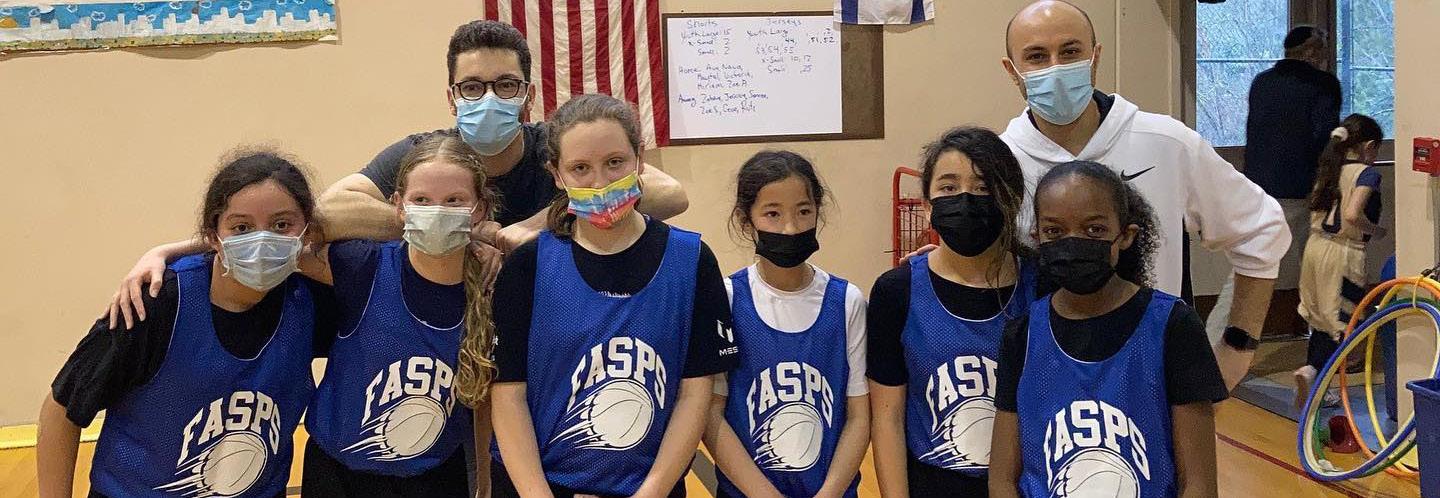
33 FASPS OVERNIGHT TRIPS HANDBOOK
Supporting students who might be sick or upset is everyone’s concern. The Trip Leaders and chaperones discuss the best approach for supporting students, whether it be for applying first aid or attending to a homesick student (or any other incident that can arise). If parents are contacted, Trip Leaders are made aware of the plan.
Redirecting student behavior is everyone’s responsibility. As with the behavior app, it must be brought to the attention of the student at the time and reported to a Trip Leader by the chaperone who observes it as soon as possible. Notes are taken that can later be recorded on the behavior app.
Low concerns are responded to by a chaperone or advisor who may be attached to a student travel group. Moderate concerns are shared with the Trip Leaders, and significant or high concerns are brought to the attention of the Dean of Students and Division Head, who partner with Trip Leaders when behavior incidents occur.
In the case of a medical or behavioral incident that may take hours or days to resolve, a plan can be made with Trip Leaders that allows the team to rotate, allowing everyone time to recuperate. Managing fatigue and stress is directly related to physical safety, and Trip Leaders monitor the wellbeing of the team. Any chaperone must let a Trip Leader know if they are feeling stretched or unwell.
Chaperones do not organize or participate in personal trips during educational trips. Chaperones can have evenings off according to the schedule prepared ahead of the trip.
Upon return, chaperones understand they will stay with the group until most students have been collected by their families. Trip Leaders and chaperones check in with each other when leaving the airport at the end of a trip, making sure all equipment and gear is distributed across them.
Upon return to school, the return and reorganization of equipment and materials is a shared responsibility, as well as the communicating concerns, providing input for trip review, and organizing and participating in open houses that showcase trips to families.
34 FASPS OVERNIGHT TRIPS HANDBOOK
Compensation
No matter how well a trip is organized, the role of Trip Leader and chaperone is a high energy and high responsibility role that feels taxing. This effort needs to be recognized through a variety of ways. Trip Leaders have a modest amount of time allocated to trip planning within their contract. In addition, chaperones receive a stipend for each night spent on a trip.

Chaperones may use the small expenses budget of the trip to purchase small items, such as hot beverages or if a dietary restriction were not respected. Otherwise, they should expect to eat the same meals and snacks organized for the students as a per diem is not used for student trips.

35 FASPS OVERNIGHT TRIPS HANDBOOK
Travel Checklist
� Ground Travel itinerary
� Points of contact in country (phone numbers, addresses, names, company)
� Telephone with international calling plan
� Travel first aid kit
� OTC medications
� Health and Waiver packet for each traveling student (hard copies)
� Health and Waiver packet for each traveling student (electronic PDF)
� Copies of passports (hard copies)
� Copies of passports (electronic PDF)
� Air travel confirmation numbers and itinerary
� School credit card with PIN to access cash
� Leader’s Handbook
� Travel guide to target country/region
� Contact numbers and emails for each parent of traveling students

36 FASPS OVERNIGHT TRIPS HANDBOOK
Equipment
� School credit cards are used for expenditures. They must be limited to purchases that are in direct support of the trip. Durable goods purchases must be approved in advance of their purchase. Keep all receipts.
� FASPS has 4 identical iPhone SE (2020) trip phones that are active and available for use. Their phone number can be given to parents for emergency, which prevents chaperones giving out personal numbers. They have been labeled by grade to differentiate them. If they are misplaced, we can remotely lock and track their location.
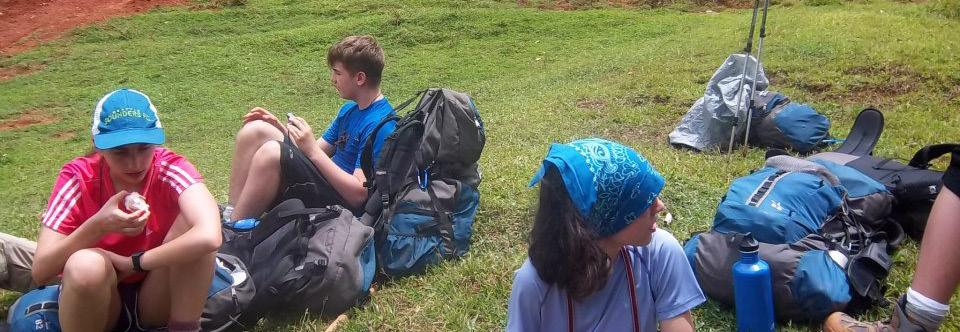
� Travel first aid kit and medications. This first aid kit is not the equivalent of a medical professional. It should be used to address minor cuts, scrapes, burns etc. OTC medications should not be used for any prolonged complaints. You have access to hospitals and doctors. Use them. Triple check all prescription medications and make sure all chaperones are informed about how to use them.
� Forms, travel tickets and passports. Delegate copies. Triple check all copies and originals. Do not leave it in your room or in your checked baggage. When safes are available, keep passports in them.
� International Trip Handbook. A copy of this handbook should be with you.
37 FASPS OVERNIGHT TRIPS HANDBOOK
Cell Phone Number Account Cell Phone Number Account 206-638-9316 Trip 6 206-638-0623 Trip 7 206-459-7768 Trip 8 206-586-7637 Trip 4-5
Reporting Incidents
The following is a list of priorities to follow in the reaction to and reporting of incidents.
� Stay calm.
� Ensure the kids are safe and in a place that allows you to react and assess.
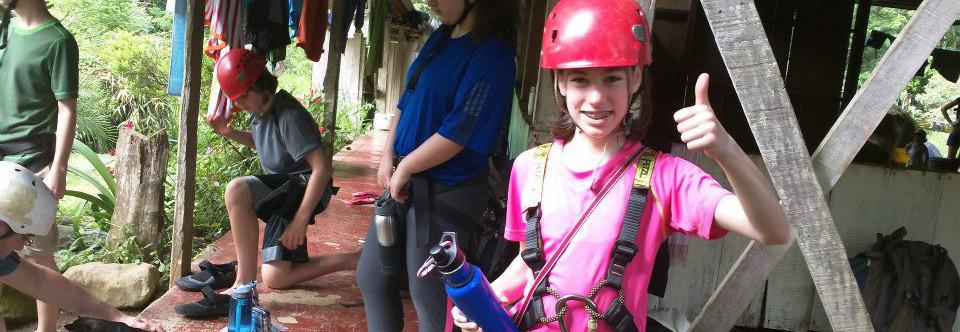
� Assess the situation. Reportable incidents range from severe injury to being pickpocketed - your actions will vary with the incident.
� Call for help - adult bystanders, the police, the fire department etc.
� Unless police or other officials are on the scene, secure, to the best of your ability, the area of the incident.
� Treat injuries within the limits of your training until competent medical authorities arrive.
� Document the incident scene by taking notes, sketching, or photographing.
� Travel with an injured or arrested student to the hospital or police station. Leave an adult leader with the other children.
� In the case of life-threatening injury or criminal activity carried out by or carried out against a member of the travel group, notify the Embassy. Phone numbers are listed in the contacts section of this handbook.
� Get copies of police reports, hospital/doctor reports, names, and phone numbers of attending physicians, police officers or other officials.
� Complete initial incident report and transmit.
� Remain with the group member until directed to do otherwise by competent local officials, US Embassy officials or by a Division Head or the Head of School.
� Provide updates every six to twelve hours or as otherwise directed.
38 FASPS OVERNIGHT TRIPS HANDBOOK
Off-Site Incident Report Information Requirements
This information can be communicated in any format as the situation necessitates.
Date: ___________________________________ Time of Incident: ____________________________
Time of Report: ______________________
Location: ______________________________
Time Police Notified: ________________________
Time Fire Dept Called: ______________________
Victim/Injured/Perpetrator Details
Name of injured or victim: __________________________________
Name of perpetrator: _______________________________________
Current Location: ____________________________________________
Injuries/charges: ____________________________________________
Time Ambulance Called: ___________________
Time Embassy Called: ______________________
Description of Incident (Establish the context of the event, describe your location, describe the location and activities of the person(s) involved in the incident, describe your discovery of and initial response to the incident)
Checklist of Documentation: Get as much of this as possible. Attach with incident report.
� Police Report.
� Medical Report (doctor, nurse, or hospital)
� Witness Reports. Take statements from students who witnessed the incident.
� Summary of conversations with Embassy
Timeline of Events: Use this to reconstruct events and times from incident to resolution/into the hands of police/medical.
39 FASPS OVERNIGHT TRIPS HANDBOOK
Place of Technology

We view student communication with home as a way to process and learn from their experiences, rather than providing a lifeline to what is familiar. Building self-reliance, independence, and a sense of trusting one’s group and leader is at the heart of this. Student use of personal cellular- or wifi-enabled devices (including Smart and Apple watches, cell phones) varies by age and is communicated at trip presentations. Any plans surrounding the use of technology on trips will be vetted by the Division Heads prior to any communication to families.
Emergency Contacts, Chain of Command and What If
The information below is specific to current trip destinations. Please note this information is also in the FASPS Trip Health and Safety Guide that chaperones bring with them electronically and as paper copies.
Chaperone contacts
List here each year for each trip with the trip dates
40 FASPS OVERNIGHT TRIPS HANDBOOK
School Cell Phones
These phones can be tracked if lost or misplaced.
School emergency contacts
French American School of Puget Sound
3795 East Mercer Way
Mercer Island, WA 98040
Front desk: 206-275-3533
Stacy Chandler: 206-275-3533 x238
Cell after hours: 510-778-5901
Eric Thuau 206-275-3533 x.217
(Great choice if you need Spanish)
Cell after hours: 206-617-1333
Victoria Paolacci-Mellor: 206-697-7574
Susan Griesse: 206-275-3533 x.232
Cell after hours: 206-6172473
Note: Only one phone call to the school needs to be made. For emergencies (illness, injury, crime, etc.), call Victoria Paolacci-Mellor first. For non-emergencies, call Stacy Chandler.
Local emergency contacts
Universal emergency phone number: 112
For France

United States Embassy in Paris
2 avenue Gabriel (for emergency)
75008 Paris
Email: Citizeninfo@state.gov
Life or death emergency: 112
Phone: +(33)(1) 42 66 97 83
Emergency phone after hours: +(33)(1) 43-12-22-22
41 FASPS OVERNIGHT TRIPS HANDBOOK
Cell Phone Number Account Cell Phone Number Account 206-638-9316 Trip6 206-638-0623 Trip7 206-459-7768 Trip8 206-586-7637 Trip4-5
AEFE - L’Agence pour l’enseignement français à l’étranger (Association of French Schools Abroad)
23 place de Catalogne, 75014 Paris
Phone: +33 (0)1 53 69 30 90
For Costa Rica

US Embassy San Jose
Telephone: (506) 2519-2000 | From the U.S.: 011-506-2519-2000
Embassy fax: (506) 2519-2305 | From the U.S.: 011-506-2519-2305
Consular fax: (506) 2220-2455 | From the U.S.: 011-506-2519-2455
Costa Rica Explorations Sister School AEFE
Molly Alden-Rabenau
Lycée franco-costaricien
US - (435) 729-9177 De la casa de José Figueres, 5.5 km noreste
CR - 011-506-8705-1954
CR Office - 011-506-2556-1210
674-2250 Tres Ríos, San José, Costa Rica
Tél 00 506 22 73 63 73
http://www.costaricaexplorations.org www.franco.ed.cr
For China
US Embassy Beijing US Consulate General Chengdu
No. 55 An Jia Lou Road
No. 4 LIngshiguan Road, Section 4, Renmin Nanlu
Chaoyang District, Beijing 100600, China Chendu 61004, China
Tel +86 10 8531-4000
Emergency After-Hours Tel +86 10 8531-4000
Fax +86 10 8531-3300
BeijingACS@state.gov

Beijing
Ambassade de France en Chine
Faguo Zhuhua Dashiguan
60, Tianze Lu - 100600 Pékin (Beijing)
Tél +86 10 85 31 20 00
Tel +86 28 8558-3992
Emergency After-Hours Tel +(86)(10) 8531-4000
Fax +86 28 8554 6229
AmCitChengdu@state.gov
42 FASPS OVERNIGHT TRIPS HANDBOOK
法国驻华大使馆
北京市朝阳区天泽路60号 100600
French Schools in China
Enseignement Français Chinois Phoenix Lycée français international Charles-de-Gaulle de Pékin
Wuyuan Lu 100 Jingshundong Jie, Chaoyang district
Shanghaï 201206, Chine Beijing 100015, China
Tél +86 183 21 26 28 34
General procedures
Tél +86 10 65 32 34 98
In all scenarios, the first course of action is to ensure immediate care and or security needs of all students are met. Phone calls should be made as soon as this has been done. In cases where the School cannot be reached and time is of issue, the chain of command proceeds to the trip leader to make critical decisions.
Communication should go through the school to parents, rather than directly from chaperones to parents. This frees chaperone energy and time so that they can concentrate on students. This also keeps them from being negatively impacted by any overly emotional parents.
Chaperones should contact school as soon as the group arrives at its destination and/or when transferring flights en route.
Upon arrival at the destination, chaperones should become aware of
� Local emergency procedures
� Local emergency phone numbers
� Location of first aid kits
� Exit routes
They should communicate clearly with the students what they should do in an emergency. Chaperones will:
� Review evacuation procedures for lodging and have the
� Scan areas for each activity and be clear about how to respond to potential dangers
� Designate meet-up points for each activity or area of visit
� Review procedures surrounding transportation
o If separated from group at a station, students should “stay put”
o If separated from group on a moving vehicle, students should practice “next stop descent, then ‘stay put’”
� Provide every student with a cell phone contact card
43 FASPS OVERNIGHT TRIPS HANDBOOK
Risk Management
Risk management refers to the continuing process to identify, analyze, evaluate, and treat exposure to potential losses (financial, health, safety, etc) and their adverse effects.
� In November or December, all travelers and parents attend a trip presentation. Information about behavioral expectations, health and safety practices, and other procedures relative to paperwork will be shared.

� All chaperones must be CPR and First Aid certified. Leaders must review the contents of these first aid kits, ask questions when confused about supplies and carry them at all times. Leaders will also meet about a month before departure to review emergency protocols and imagine emergency scenarios.
� Chaperones need to be familiar with procedures for contacting the school and other authorities in the case of an emergency. An Emergency Contact Plan and the FASPS Trips Health & Safety Guide lay out contact information for both the Trip Leaders and the School, as well as all destinations during the trip. Leaders will need to ensure they have an easy means of communicating via phone during all legs of the trip. A simplified Emergency Contact Plan is shared with parents.
� Advisors, the Dean of Students, and the School Counselor will check in with students at different times the month prior to departure to evaluate student wellbeing and to support around homesickness, change, relationships with other students, and socio-emotional boundaries. The Division Head also visits the week prior to departure to review street smarts, safety guidelines and protocols with the students.
� It is critical to monitor risks in trip destinations. The US State Department issues travel warnings and advisories. FASPS reserves the right to cancel any trip because of safety concerns. https:// travel.state.gov/content/travel/en/traveladvisories/traveladvisories.html/
44 FASPS OVERNIGHT TRIPS HANDBOOK
� In addition to FASPS insurance, all students and chaperones going on international trips are covered by Travel Insured for travel disruption, medical needs, emergencies, and repatriation. Additional medical emergency insurance is also purchased for domestic trips.
� Division Head / Facilities, Office and Transportation Director & Covid-19 site Coordinator registers trips with the Department of State and/or the French Consulate as required.
Debriefing and Review
A task force will be assembled every 2-3 years to review this handbook and make sure the contents are still applicable, comprehensive and relevant.
After each trip a debrief with the Trip Leaders, chaperones, and Division Head will be held.
Agreement Signature Page
All chaperones are asked to sign an agreement page attesting to their reading and agreement to this Handbook and the Trips Health & Safety Guide.
45 FASPS OVERNIGHT TRIPS HANDBOOK







































